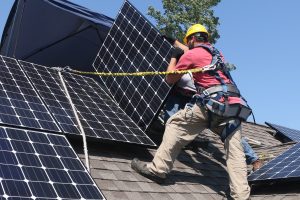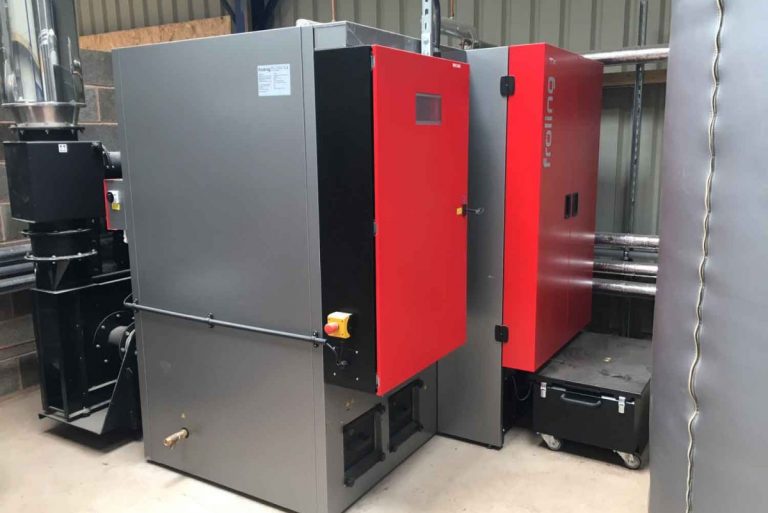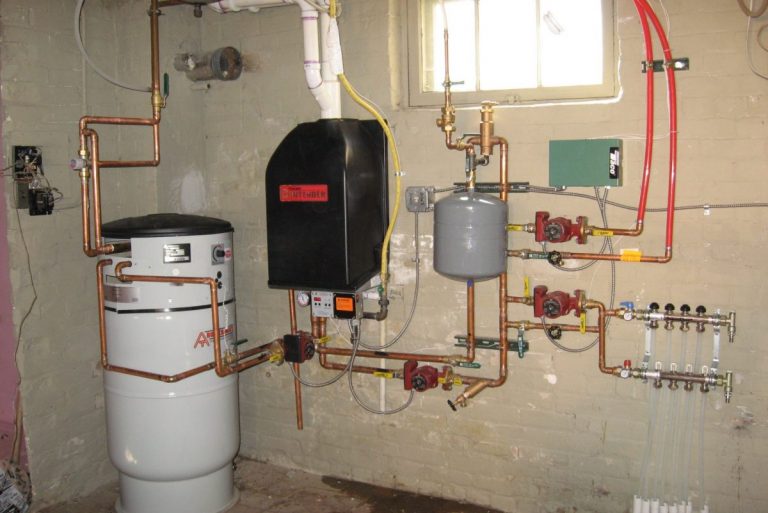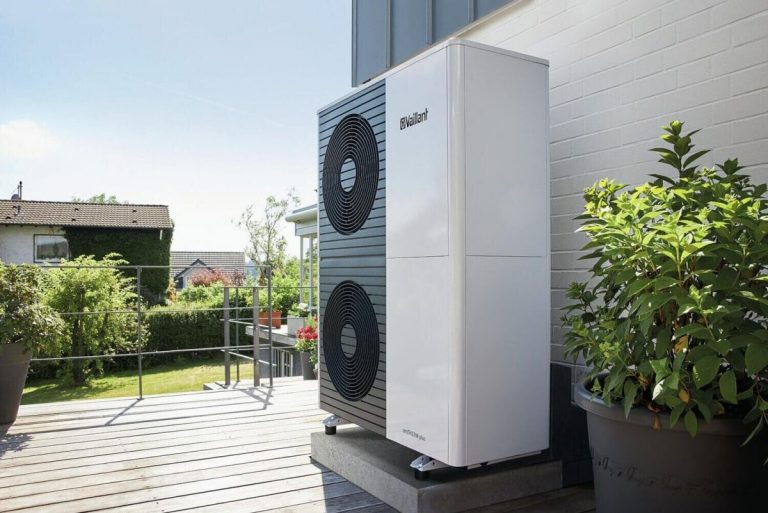When it comes to providing hot water for your home, you may have heard the terms “boiler” and “water heater” used interchangeably and think they have the same functions. While both devices are used to heat water, they have distinct differences in their construction, functions, and capabilities. In this article, we will explore the differences between a boiler and a water heater and help you choose the best option for your hot water needs.
The Difference Between a Boiler and a Water Heater?
Before we delve into the details, let’s define what a boiler and water heater are and what sets them apart.
What is a Boiler?
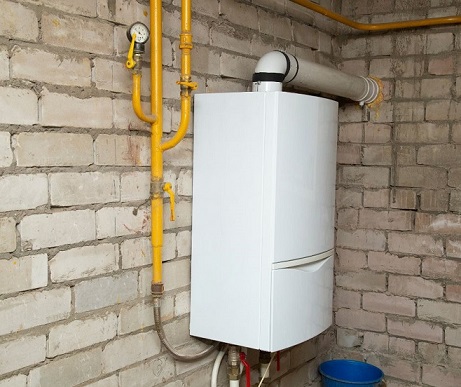
A boiler is a heating device that uses a fuel source (such as natural gas, heating oil, or propane) to heat or boil water, which is then transported through pipes to radiators, baseboard heaters, or a radiant heat system to provide warmth to your home. Unlike water heaters, which store warm water for later use, boilers warm water on demand.
High-Pressure vs. Low-Pressure
Boilers can be categorized into two main categories: high-pressure and low-pressure. High-pressure boilers are used for industrial purposes, such as generating steam to power turbines, while low-pressure boilers are used for residential heating purposes.
Furthermore, there are different boilers, including standard, combi, and system boilers. Standard boilers are the most basic type of boiler and are typically used in older homes that have radiators or baseboard heaters. Combi boilers are a newer type of boiler that combines the functions of a water heater and a central heating system into one unit. System boilers are similar to standard boilers but have additional components, such as an expansion vessel and circulating pump, that help to improve efficiency and performance.
Uses for Boilers
Boilers are commonly used for home heating purposes, such as providing warmth to radiators, baseboard heaters, or radiant heat systems. They can also be used to heat potable water for your home.
What is a Water Heater?

A water heater, also known as a hot water heater, is a device that heats water and stores it in a tank. A water heater can run on various fuel sources, including natural gas, propane, and electricity. Cold water enters the tank, where it is heated to the desired temperature, and then stored until it is needed.
Types of Water Heaters
There are several types of water heaters, including tankless hot water heater, indirect water heaters, and tank heaters. A tankless water heater boils water instantly, while indirect water heaters use the heat from a boiler to heat the water. Tank heaters store hot water in a tank and are the most common type of water heater found in homes.
Uses for Water Heater
Hot water heater is primarily used for providing hot water to your home. They are suitable for both residential and commercial use and can provide hot water for the whole house or a single faucet.
Boiler vs Water Heater: Key Differences
Boiler or Water Heater: Efficiency
When it comes to efficiency, the boiler has an advantage over a water heater. Boilers are typically more efficient in converting fuel into heat compared to any water heater. This is because boilers boil water using a closed-loop system, which can maintain a constant temperature and minimize heat loss.
On the other hand, a traditional water heater heats potable water using a tank, which can lose heat even when the water is not being used. This means that the water heater has to work harder to maintain the desired temperature, resulting in higher energy consumption.
However, advancements in technology have led to the development of tankless water heater, which heats water instantly and only when it is needed. Tankless water heaters are more energy-efficient than traditional tank heaters because they do not store hot water and only warm cold water when it is needed.
Installation Expenses

The cost of installing a new boiler is typically higher than that of a water heater installation. This is because a boiler system requires more components, such as pipes, radiators, and valves, to function properly. Additionally, the installation of a boiler may require modifications to the existing heating system, which can add to the cost.
In contrast, hot water heaters installation is relatively straightforward and requires fewer components. Tankless water heaters may require additional electrical work, but this is typically less expensive than the modifications required for a boiler system.
Boiler Vs Water Heater: Maintenance

Both boilers and water heaters require regular maintenance to function properly and avoid breakdowns. Boilers may require more maintenance due to their more complex system. The heat exchanger, which is responsible for heating the water, may need to be cleaned to prevent the buildup of lime or mineral deposits.
The water heater may also require maintenance, particularly if they have a storage tank. The tank may need to be flushed regularly to remove the sediment buildup, which can reduce the efficiency of the system.
Boiler Vs Water Heater: Lifespan
The lifespan of a boiler or water heater depends on factors such as usage, maintenance, and quality of the system. However, in general, boilers tend to last longer than the water heater. The average lifespan of a boiler is around 15 years, while a traditional water heater has a lifespan of about 8 to 12 years.
Tankless water heaters, on the other hand, can last up to 20 years, which is comparable to the lifespan of a boiler. This is because tankless water heaters do not have a storage tank, which can corrode and lead to system failure.
How Boilers and Water Heaters are Similar
Despite their differences, boilers and water heaters share several similarities. Both are designed to heat cold water for various uses, including providing hot water for washing, bathing, and other household activities. Additionally, both systems require maintenance to function efficiently and safely.
Final Thoughts
In conclusion, understanding the differences between boilers and water heaters is crucial when deciding which system to install in your home. Boilers are designed to heat water for heating purposes, while water heaters are primarily used to heat potable water for household use. Boilers are generally more efficient than water heaters, but they are more expensive to install and maintain.
Both boilers and water heaters require regular maintenance to ensure they function safely and efficiently. They also have different types and models available, catering to different needs and preferences. Moreover, they share some similarities in terms of fuel sources, installation requirements, and the availability of different models and types.
Therefore, it is important to consider factors such as energy efficiency, installation expenses, maintenance, and lifespan when deciding between a boiler vs water heater. Ultimately, the choice between these two systems depends on your household’s hot water needs, budget, and preferences. Whether you opt for a tankless water heater, indirect water heater, or combination boiler, make sure it is installed properly, maintained at the proper temperature, and properly descaled to prevent lime buildup.

